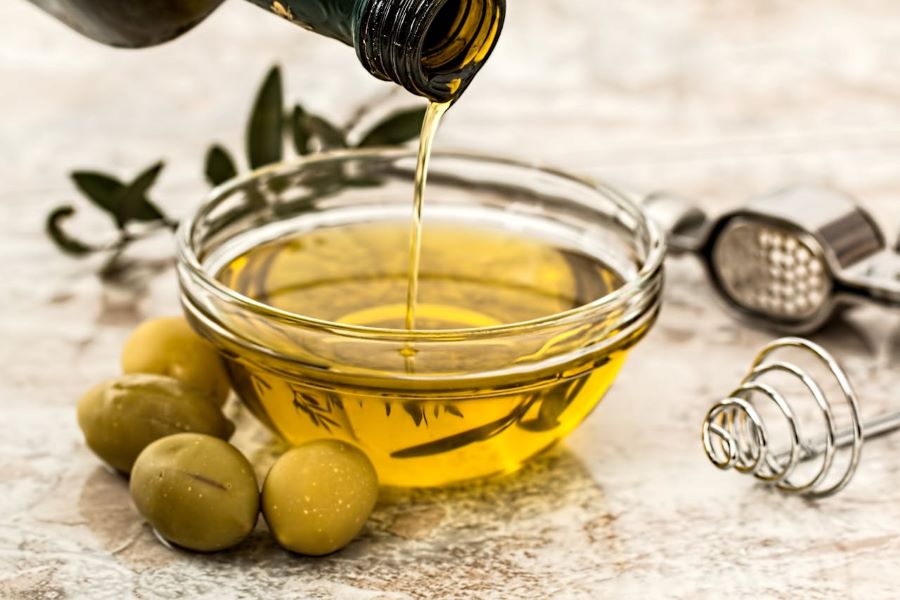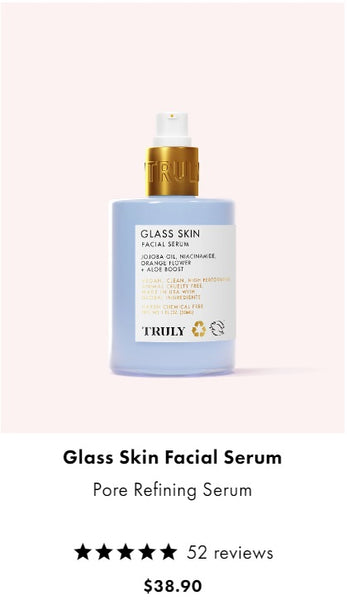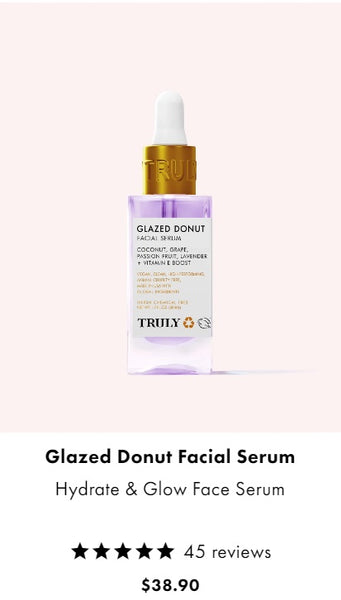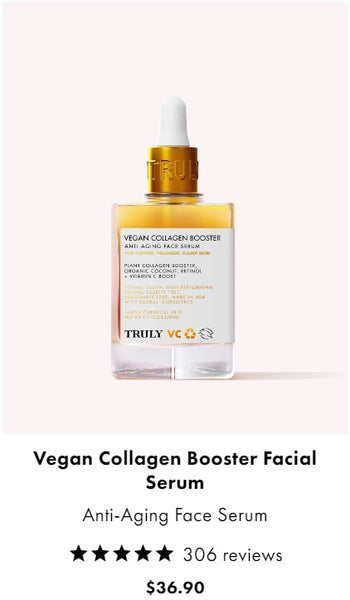Does Olive Oil Clog Pores?
March 28, 2024
By: Truly Beauty
It’s been used on the skin since ancient times, but does olive oil clog pores? When you’ve got oily or acne-prone skin, it’s always a good idea to know which ingredients are comedogenic—and therefore, pore clogging. Otherwise, you could end up putting ingredients on your skin that make your breakouts worse.
Will olive oil clog pores? You’ve probably heard all about its emollient, antioxidant, and anti-inflammatory properties. But before you slather your skin with it, let’s find out if this natural oil will congest your pores and possibly heighten your risk of breakouts.
Does Olive Oil Clog Pores?
Everyone from Cleopatra to Jennifer Lopez are fans of olive oil skincare. Packed with fatty acids and squalene, olive oil is a hydrating powerhouse that’s perfect for people with dry skin. But what about if you’re blemish-prone? Does olive oil clog your pores?
As a moderately comedogenic ingredient, olive oil can clog the pores. What’s more, some studies suggest that its high level of oleic acid which acts like sebum can clog your pores and may cause water loss.
According to dermatologists, olive oil isn’t recommended for acne-prone skin types. First, because it’s comedogenic. And second, because it’s a naturally heavy oil, it’s more likely to breed bacteria and congest the pores. So the answer to does olive oil clog pores is a yes.
That being said, everyone’s skin is different. Some acne-prone people may experience no issues when using olive oil on their skin while others may find that it triggers blemishes. In some cases, olive oil’s pore-clogging effects can be reduced when mixed with other ingredients.
Is it Okay to Put Olive Oil On Your Face?
Olive oil is brimming with benefits for the skin. A natural anti-inflammatory that’s chock full of antioxidants and hydrating, healing powers, why would you not slather your face and body in it? Well, as much as we adore its skin-loving properties, it’s not always the right choice for everyone.
Olive oil is a comedogenic skincare ingredient that’s likely to clog your pores and increase your risk of acne and shine. While those with dry skin may notice a visible improvement in the appearance of their skin after using olive oil, those with oily or blemish-prone skin should be cautious.
Most derms suggest opting for a specifically formulated face oil or serum instead—which will give you all the plumping power without clogging your pores. Some non-clogging oil alternatives to look out for include jojoba oil, grapeseed oil, tea tree oil, and rosehip oil.
Will Olive Oil Cause Acne?
Dermatologists generally do not recommend topical use of olive oil if you’re prone to acne. Does olive oil clog pores? Pure olive oil is comedogenic, meaning that it can clog pores and lead to acne breakouts. If you have acne-prone skin, you’re better off opting for another, non-comedogenic facial oil instead.
Additionally, the fatty acids present in olive oil are a source for acne-causing bacteria to grow and thrive. For that reason, olive oil is not great for those prone to blemishes.
That doesn’t mean you can’t use it at all, however. Instead of using it on your face, which is not recommended if you’re pimple-prone, apply it to your body instead—unless you get blemishes on your body, too.
Best Alternatives to Olive Oil
Want all the hydrating benefits of olive oil without clogging your pores or worsening acne? Here are some of the best alternatives we know your skin will love.
Best for: Large Pores & Acne-Prone Skin
Truly Glass Skin Facial Serum’s key ingredient is jojoba oil, a natural oil that balances sebum production to prevent clogged pores and blemishes. It also contains soothing niacinamide and biome-balancing probiotics to reduce inflammation and keep your skin crystal clear.
Best for: Dry, Dull Skin
Truly Glazed Donut Facial Serum drenches skin in hydration, leaving it soft and luminous from the very first application. Formulated with coconut, passion fruit, and vitamin E to alleviate dry patches and roughness for smooth, supple skin.
Best for: Uneven Skin Texture
Truly Vegan Collagen Facial Serum is a light-as-satin serum that melts into skin and rejuvenates with a powerhouse blend of retinol, vitamin C, and plant collagen booster. It increases cell turnover and boosts collagen production to promote smoother, firmer, and clearer skin.
Is Olive Oil Good for Your Skin?
In many ways, olive oil is good for the skin. Its main benefit is its ability to deeply moisturize the skin by reducing water loss, improving skin’s health and appearance. Olive oil is also loaded with antioxidant properties that protect the skin against environmental damage while preventing premature aging.
It’s also an excellent natural makeup remover. Olive oil helps to break down oil-soluble residues and waxy substances like waterproof eyeliner and mascara without irritating the skin thanks to its hydrating effects.
Alongside all of this, olive oil has anti-inflammatory properties that can make it effective for healing wounds. Its presence of triterpenes also aids in reactions responsible for wound healing, such as cell proliferation and collagen production.
On the other hand, olive oil is still considered to be a comedogenic ingredient, which means it is likely to clog your pores and potentially contribute to breakouts. So if you have oily or acne-prone skin, olive oil probably isn’t the best choice for your skin. Opt for a specifically formulated face oil instead.
Conclusion: Does Olive Oil Clog Your Pores?
Olive oil can be found in a wide range of skincare products including serums, creams, and lotions. But does olive oil clog pores? As a comedogenic ingredient that’s very heavy and rich, olive oil can indeed clog your pores. If you’re prone to breakouts and shine, dermatologists advise against using olive oil on your skin.
Fortunately, there are plenty of alternatives available if you’re looking to hydrate your skin without congesting it. That being said, everyone’s skin is different. Some people may find that olive oil triggers acne flare ups, while others might only experience positive effects from using olive oil on skin.
Read our Clogged Pores: Ultimate Guide blog to learn more about clogged pores, what causes them, and how to treat them.
Feature photo by Pixabay, Pexels
































